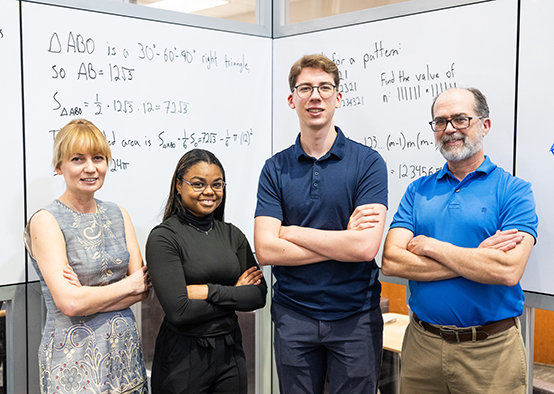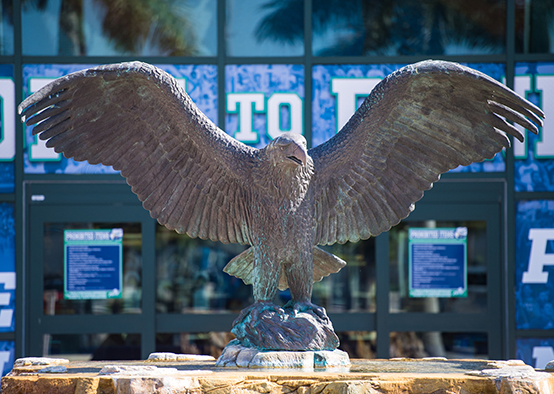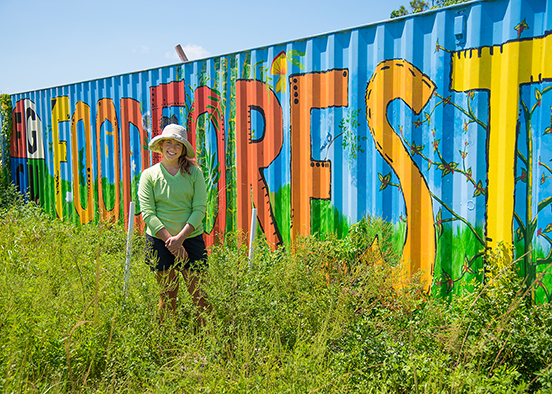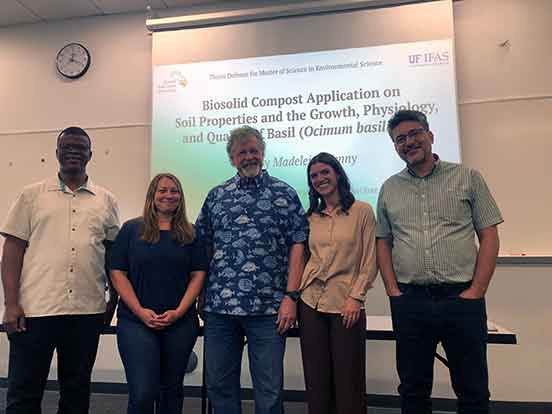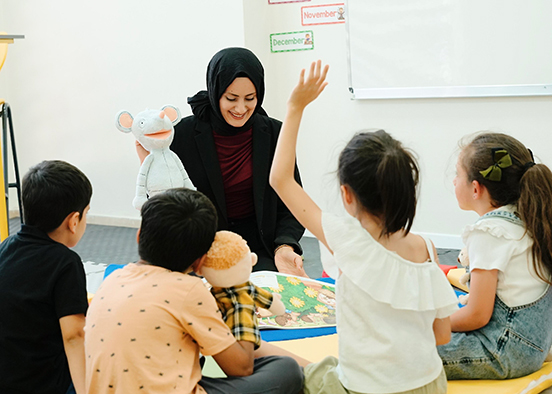Students, faculty team up to bolster middle school math education
For Kayla Kerr and Mason Huffman, the summer months weren’t filled with poolside lounging, traveling or other leisurely pursuits. Instead, the Florida Gulf Coast University undergrads devoted themselves to broadening their skill sets by helping design a platform to enable middle-school students to strengthen their math skills.
Collaborating with mathematics faculty members Tanya Huffman and Daniel Kern, the students developed a workshop series to prepare youths for the 2026 AMC 8 — the American Mathematics Competition for students in eighth grade and below, which starts in January.
The event is step one in a slate of secondary school competitions sponsored by the Mathematical Association of America that determines the U.S. team for the annual International Mathematical Olympiad.
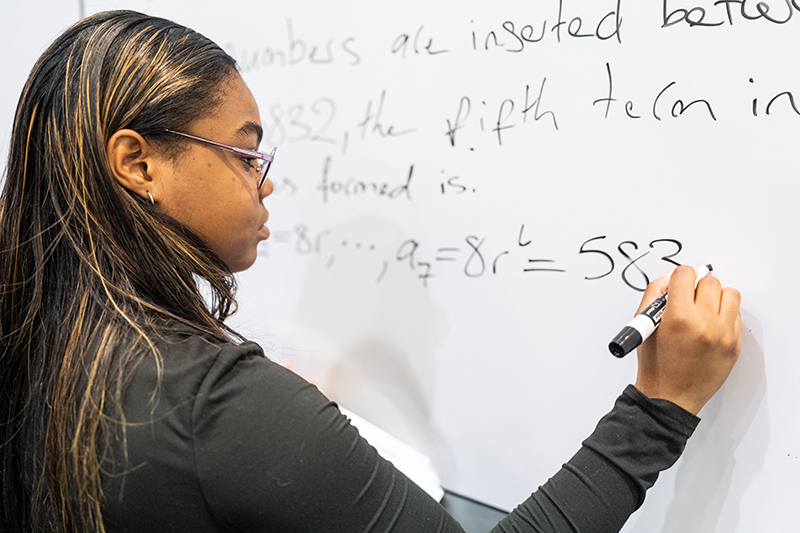
Plans call for 30 students to participate in the workshops, which are designed to boost their mathematical problem-solving skills, confidence and interest in advanced math topics.
A passion for mathematics
Kerr, 19, is a junior majoring in software engineering. A mathematics and physics major, Mason Huffman, 17, is a dual-enrollment student in his second year at FGCU.
Not only have the two students co-authored the program’s lessons, but they also serve as lead instructors for the workshops, which started Oct. 4. Their efforts will be paired with ongoing research measuring the impact of the workshop on student learning and problem-solving development.
The project is a true labor of love for the undergraduates. It allows them to combine a passion for math with a shared desire to help others improve in the discipline. These factors provided their primary motivation for taking part in the project strengthening middle school mathematics education.
“My mom was a teacher for many years,” said Kerr. “So when Professor Huffman told me that the research involved workshops with students, I was very excited. This is a chance for me to follow in my mom’s footsteps and to have an impact on young individuals.”
Kerr and Mason Huffman have already begun developing their instructional muscles.
For the past few years, they’ve served as teaching assistants at the annual Immokalee Foundation Summer Camp, which is in partnership with FGCU, and have also been actively involved in FGCU’s Mathletes Circle, an outreach program of the Department of Mathematics.
This summer, they helped lead an FGCU summer program attended by 50 middle schoolers. Kerr led interactive drone coding sessions, while Mason Huffman introduced students to the fundamentals of solar car technology.
He’s also volunteered at two Eagle Expo open houses for prospective students and contributed to FGCU’s Whitaker Institute, which promotes science, technology, engineering and mathematics education.
“The reason I wanted to join is this provides me with additional experience interacting with middle school students and it furthers my teaching skills, as well as practicing delivering presentations to a non-technical audience,” said Mason Huffman. His goal is a career in aerospace engineering.

Kerr intends to become a software engineer and eventually, to establish her own information technology company. Like Mason Huffman, she views her involvement with the project as a valuable avenue for personal growth.
“It’s helped me improve in a lot of skills, for example, problem-solving and communication,” said Kerr. “Those are skills that will be needed as a software engineer in the future. Those are skills you probably won’t always get to improve in a typical classroom.”
The duo’s previous accomplishments in academics and scholarship indicated they would be a good fit for the new team project, according to Kern, their faculty supervisor.
“We have known Kayla Kerr since spring 2024, when she was a student in Tanya’s precalculus class, and I have worked with Mason on a research project which was presented at the national math conference in Seattle in January 2025,” Kern said. “Both students are academically high-achieving and have successfully completed upper-level math courses. Not only are they academically outstanding, but they have also shown a strong commitment to outreach programs offered through the Whitaker Institute for STEM Education and Mathletes Circle.”
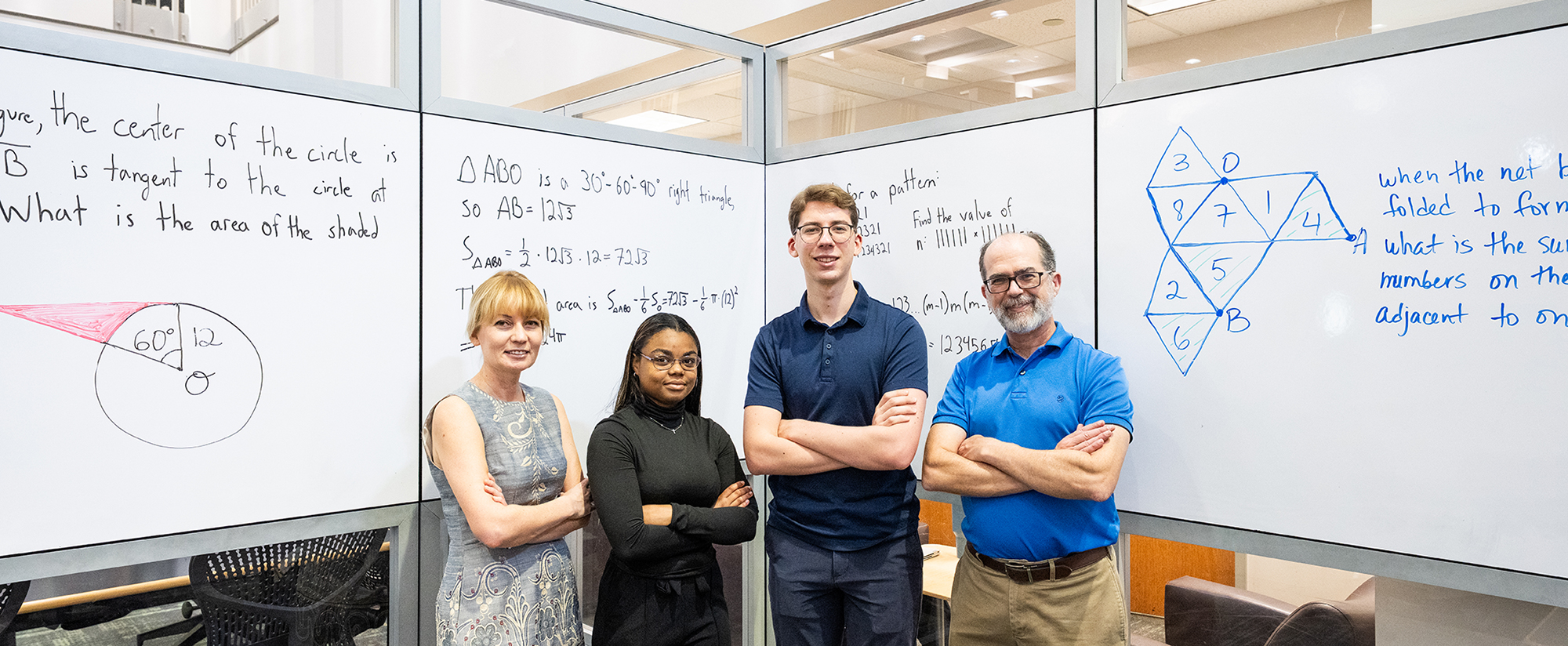
Middle school a pivotal time
The workshops project is funded by a $15,000 Seidler Student/Faculty Collaboration Fellowship Grant awarded to Kern and Tanya Huffman to support their goal of strengthening middle school mathematics education. The grants are dedicated to fostering collaborative, faculty mentored, undergraduate research projects.
Tanya Huffman said the idea for the workshops was inspired by FGCU’s Mathletes Circle outreach program for middle school children. Held Saturdays during the school year, Mathletes Circle focuses on a specific mathematical topic in each three-hour session.
Mathletes Circle, AMC 8 and the workshop project are all “grounded in the idea that middle school age is the pivotal stage for developing problem-solving and higher-order math and analytical thinking,” said Tanya Huffman.
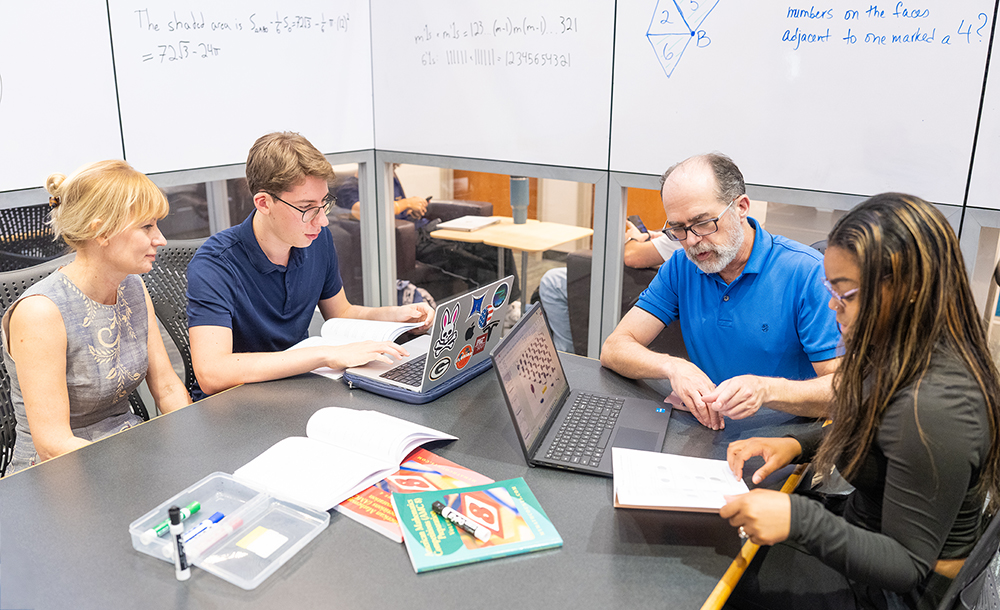
“While many students can do well in middle school math classes, the AMC 8 competition is unique because the problems require that extra level of analytical thinking,” she said.
“The problems are more challenging than the problems they typically will encounter in a regular math course. So the idea came about to create a workshop that helps the students develop this higher-order thinking, to build those foundational skills and spark the interest in students to progress to the next, more advanced math course or participate in the future math competitions.”
Latest FGCU News
- New leadership, new tourney on tap for FGCU hoops
- FGCU again recognized as a leader for sustainability curriculum and research
- From coffee to cannabis, senior studies crops in Thailand
- Technology helps golf management students up their game
- Fertile ground: How a thesis took root in Immokalee
- FGCU education empowers grad to open English school in Turkey



